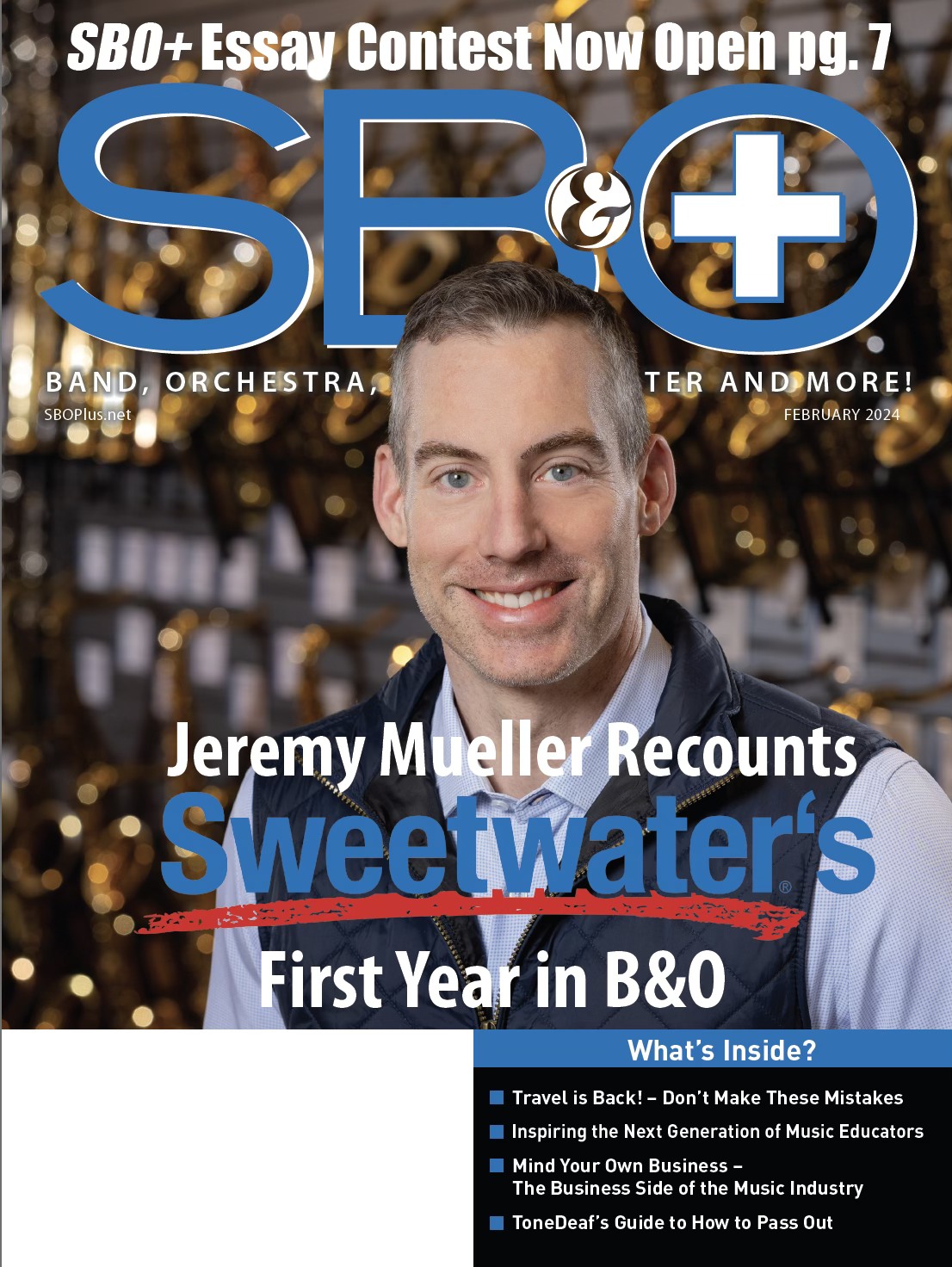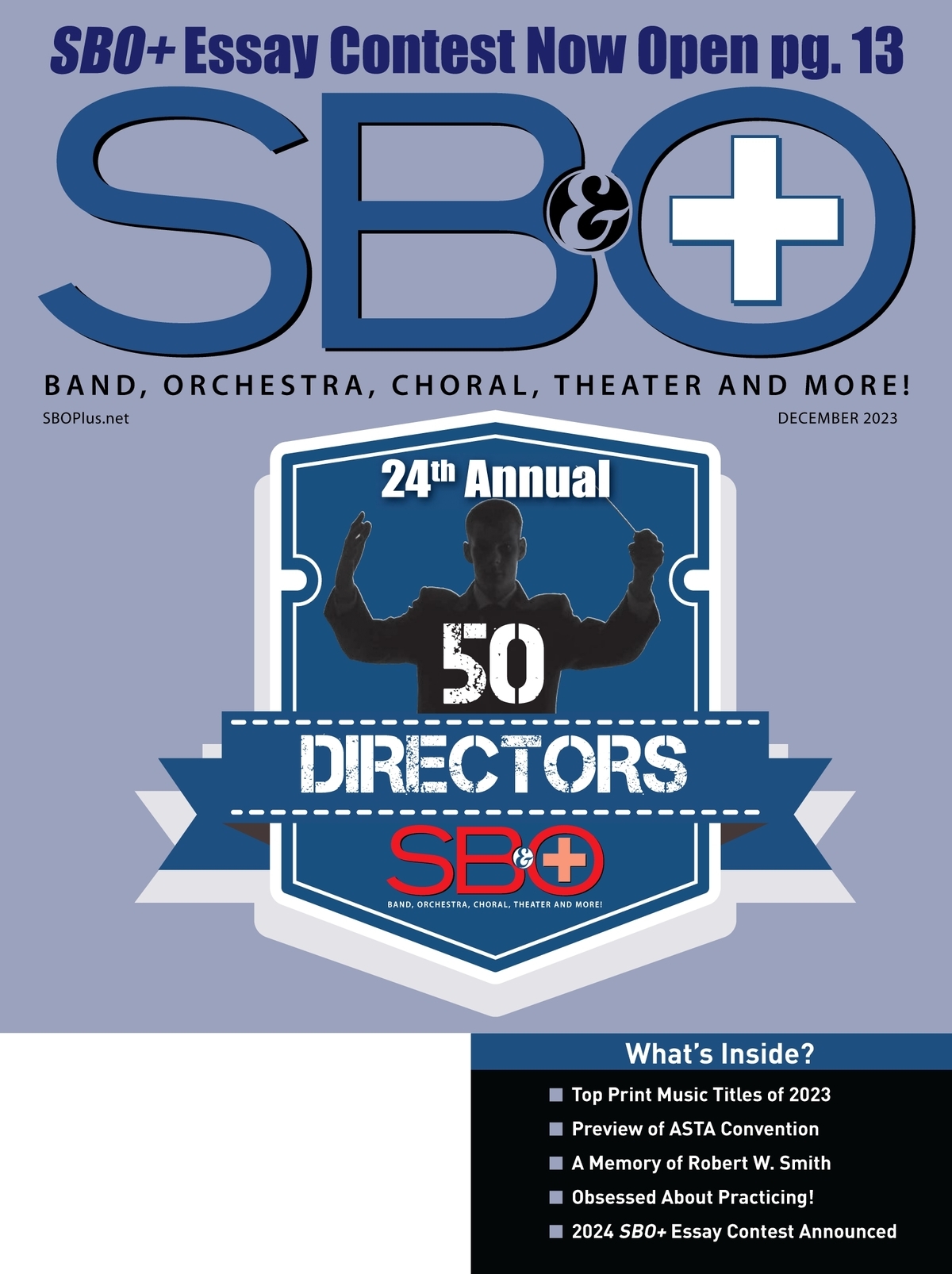EDUCATORS SUBSCRIBE FOR AS LOW AS $0.00! CLICK HERE!
 Dear SBO Readers,
Dear SBO Readers,
We recently had another rental saxophone returned, and I wanted to cry. Even more than I usually do. Why? Because this little girl came to us for mouthpiece testing and we strongly recommended she begin on clarinet and switch to sax when she was a little bigger.
Then she came to our camp and tried both sax and clarinet, and preferred clarinet — but her parents said, “She needs to build up some muscle, we want her to play sax.” By March, she was in tears each time she had to practice; by June 1st, we had the sax back.
Please understand, I’m not anti-saxophone — far from it. I’m a sax player myself — began playing sax in 1966, when a girl saxophone player was an oddity, to say the least. But I played clarinet for two years first. That’s the way it was back then — one started on clarinet and then later on played alto, or tenor or even baritone sax; or oboe or bassoon. In fact, it was still that way into the 1970’s. The point here isn’t that saxophone is an evil instrument. It’s that this child was no more able to succeed on saxophone than a two-year-old. She had neither size nor motivation. Yes, motivation can overcome size — it sure did in my case. But if a child is unsure about band (or strings) and every practice session is uncomfortable, then we may well lose a child who could have been a wonderful asset to our ensemble if the proper instrument had been chosen. We often have a similar issue with students who want to play trumpet (or whose parent wants them to play trumpet) when they can barely buzz out a middle C, much less a higher partial, even with extensive one-on-one instruction. These children could potentially be monster low brass players, but end up playing 3rd trumpet, getting discouraged, and finally, quitting.
Please understand, what parents want, what friends play, even what kids “want” (i.e. without ever even holding an instrument) are not always the best choices. Please take the time to do a real testing/fitting. If you are unsure how to do this, your local school music dealer should be able to help. Please take the time to communicate with parents that you, as an educator, and we school music dealers (who are usually also educators), have your child’s best interests at heart when we recommend (or don’t recommend) an instrument. As one insurance company says, “We’ve seen it all.” And it breaks our hearts when a child who enters band (or strings) all excited and eager to learn gets disheartened and quits.
In “An Open Letter to Band Directors” (SBO, August 2008), and the follow-up “An Open Letter to Parents” (SBO, July 2011), the issues discussed and the suggestions made are things that are still pertinent and will still help retention. They will also help inform parents about the reasoning behind your instrument recommendations, to minimize resistance.
Please take the time to re-read these articles, and please feel free to share them with your colleagues, friends and students’ parents. We all want 2018 to be the best year yet for your school music program and getting each child off to the best possible start will go a long way toward this. Thank you all for all you do to bring music to children’s lives!
Sincerely,
Tracy E. Leenman
Musical Innovations
NAMM’s Top 100 Dealer of the Year
Greenville, SC
musicalinnovations.biz






